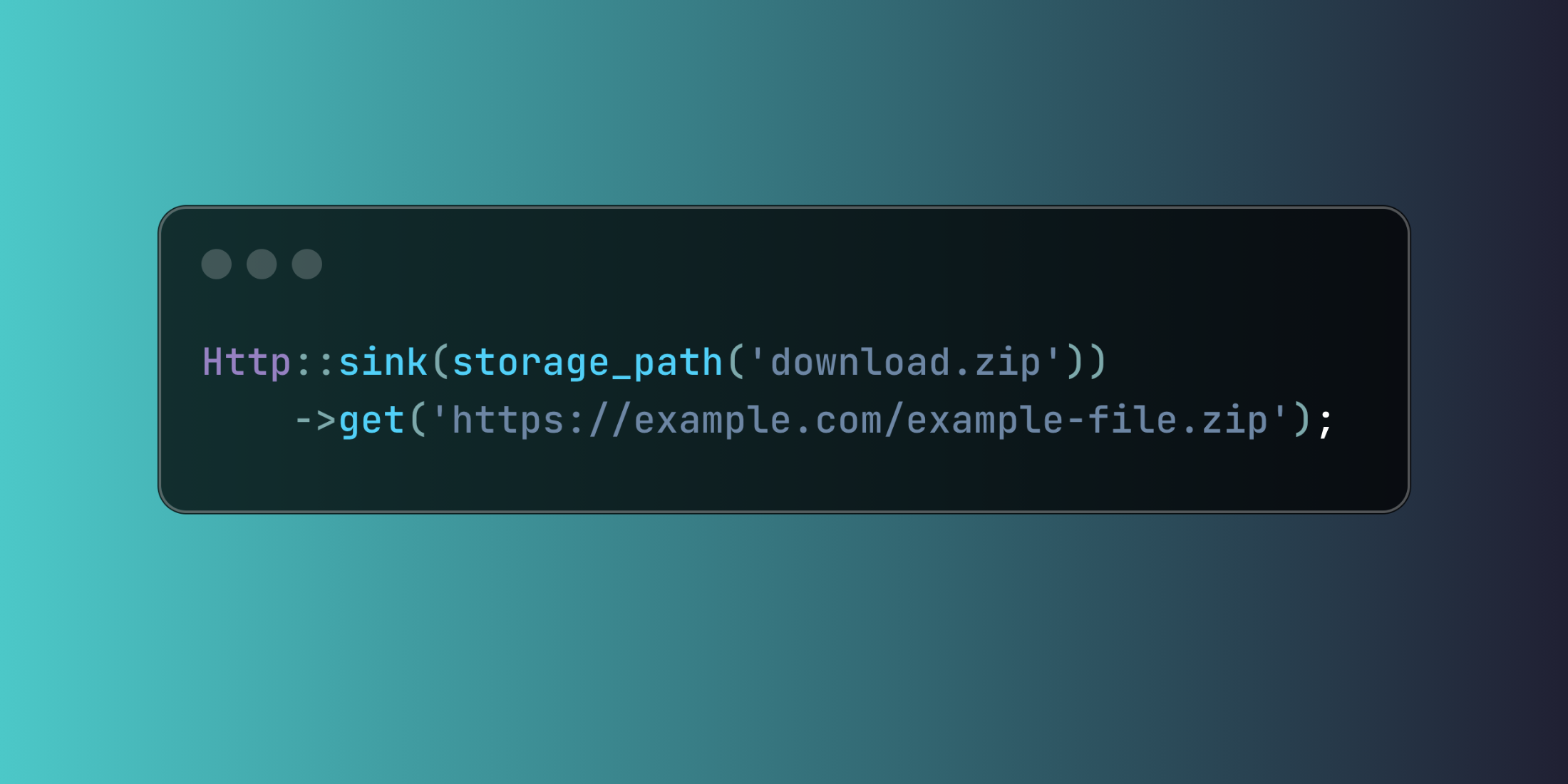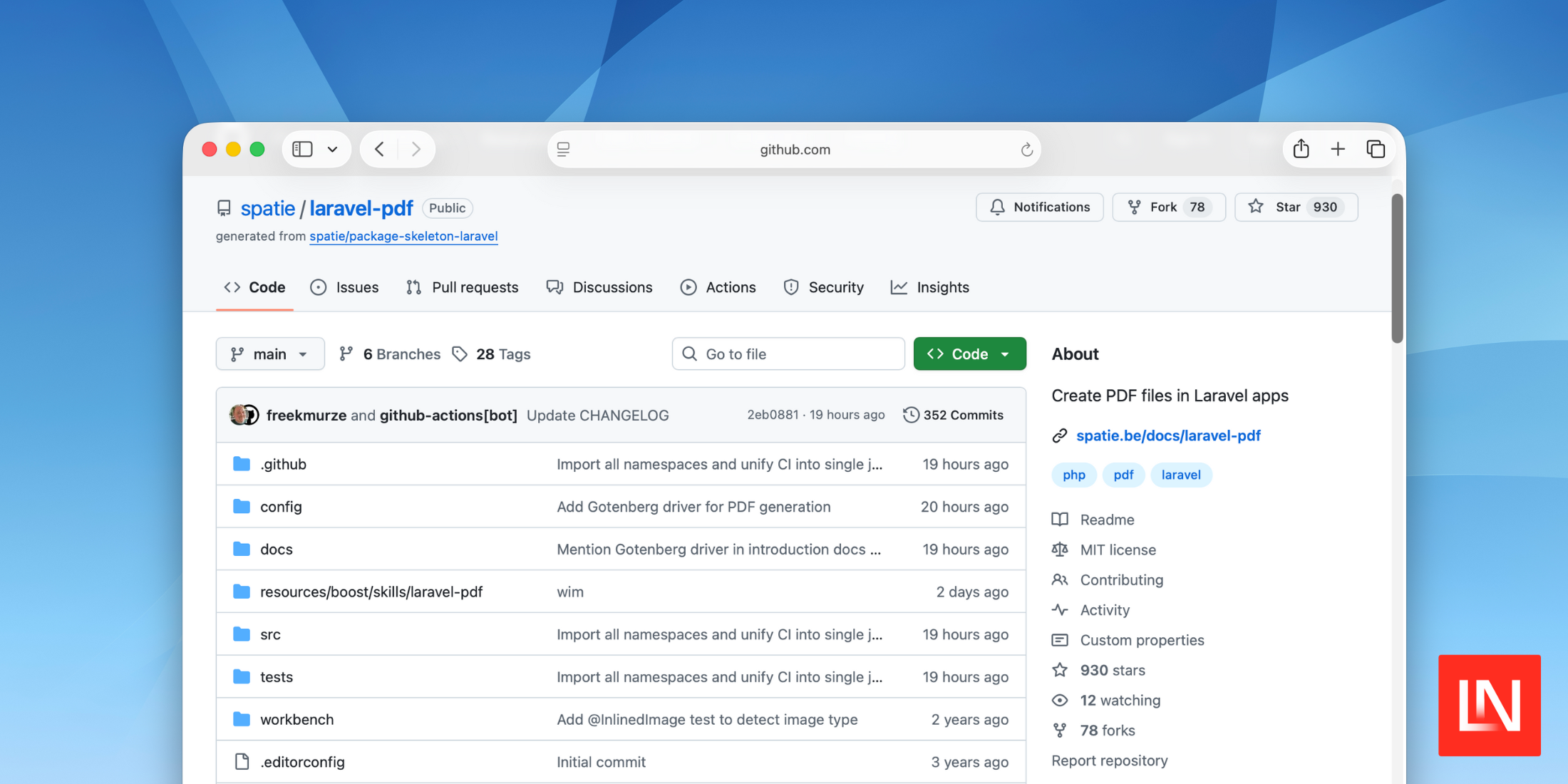Laravel's sink method transforms file downloads through HTTP requests into a streamlined process, eliminating the need for complex file handling code. This approach creates a direct pipeline from remote resources to your local storage with minimal effort.
Http::sink(storage_path('download.zip')) ->get('https://example.com/example-file.zip');By using the sink method, you bypass manual file writing processes and memory management concerns, allowing Laravel to handle the complexities of saving HTTP responses directly to disk.
class DownloadManager{ public function downloadFile(string $url, string $filename) { return Http::sink(storage_path("downloads/{$filename}")) ->withHeaders([ 'User-Agent' => 'MyApp/1.0', 'Accept' => '*/*' ]) ->get($url); } public function downloadBackup(string $backupUrl, string $apiKey) { $timestamp = now()->format('Y-m-d-His'); return Http::sink(storage_path("backups/backup-{$timestamp}.zip")) ->withToken($apiKey) ->get($backupUrl); } public function downloadReportAsCsv(string $reportUrl) { return Http::sink( storage_path('reports/latest.csv'), withHeaders([ 'Accept' => 'text/csv' ]) )->get($reportUrl); }}The sink method shines when dealing with large files that shouldn't be loaded entirely into memory. Rather than consuming precious RAM resources, the content streams directly to disk, making it ideal for background jobs, automated backup systems, and scenarios with tight memory constraints. For instance, downloading a 1GB file becomes vastly more efficient as data writes straight to storage instead of buffering in application memory first.

















